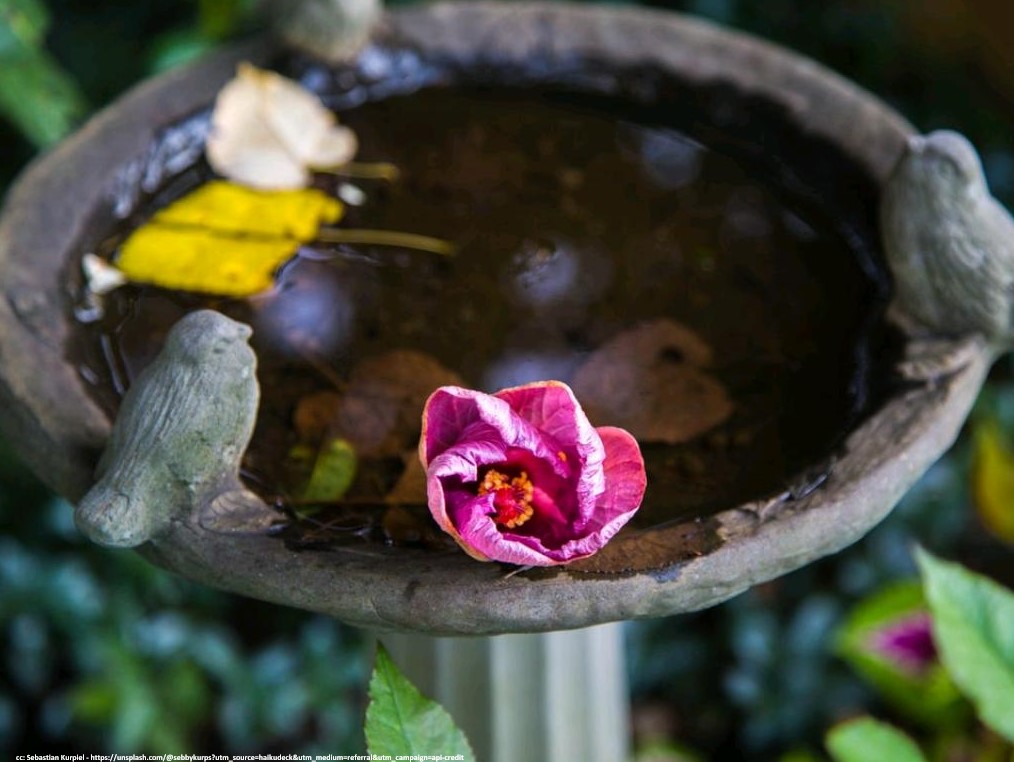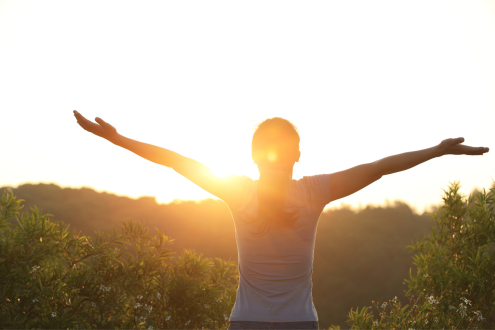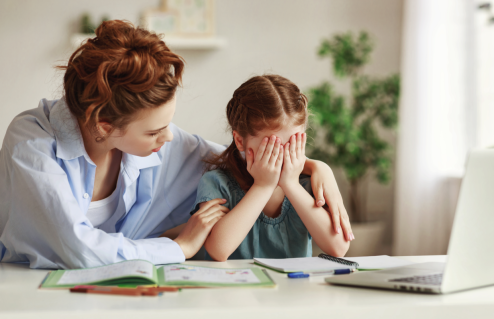Connect with nature and boost good mental health
This year marks the 21st Mental Health Awareness Week, which takes place on 10-16 May, and this year's theme is nature. This blog sets out my journey in understanding the power of the natural world in boosting good mental health.

Like many others, the global pandemic has focused my mind on the need to manage my mental health and wellbeing actively. In addition to following NHS advice, I decided to focus on what I can control rather than fall prey to rumination on the things beyond my control. This has led me to design an experiment involving some daily habits designed to build physical health and boost mental resilience.
I began my wellbeing experiment in January. I had already incorporated some aspects in my routine, such as dog walking, but others had been sporadic, such as spending time observing nature. Research has shown the positive physical and mental benefits associated with connecting with nature. So I chose activities that took me outdoors and felt achievable, which is essential when introducing new habits. I also thought it would be helpful to set some goals to stay on track.
My experiment has three main goals:
1. ensure that I take exercise outdoors for an hour a day,
2. add mindfulness as an everyday practice, and
3. ensure that I control my social media consumption and use of technology.
Learnings from my wellbeing experiment
Each day, I have walked with my husband and dog in local woods and public park. Not only has this provided exercise and fresh air but also given us time to chat together. Throwing a ball for our dog makes it energetic and fun. Plus, it is a safe and socially distanced way of talking to the other walkers who pass by.
Our dog has also trained me to play frisbee and tug games with him in the back garden, which gives me a great workout and allows my mind to relax, free from other concerns. Seeing the look of sheer joy on my dog’s face when we play in the garden is marvellous motivation whatever the weather.
I now regularly feed the birds in my garden since the commencement of the most recent lockdown. I had done so sporadically in the past, but now I make it a task before preparing breakfast. Buying in bird food and putting the container ready by the backdoor the night before has been a great way of priming this good habit. It is also a lovely form of mindfulness as I can watch the birds eat as I make and drink my coffee.
Feeding the garden birds in the morning has also positively affected my use of social media as I don’t look at my smartphone first thing in the morning. I have become more conscious of the habit of ‘doom scrolling’ the news channels and now choose what to read rather than keep scrolling. Keeping my smartphone in the room where I usually work rather than carrying it means it is an effort to pick it up rather than doing so mindlessly.
It seems to me that the natural world is the greatest source of excitement; the greatest source of visual beauty, the greatest source of intellectual interest. It is the greatest source of so much in life that makes life worth living. – Sir David Attenborough, environmentalist, broadcaster and natural historian.
It takes some careful thought and planning to decide what you want to do and then do it. The bird feeding is a good example. I have done this before but not prepared to put out kitchen scraps and not spend time observing the wildlife – it was all somewhat ad hoc. As I have bought in birdseed, this time has been different. I primed my environment by setting out containers, bought feeding tubes, and set them up. I’ve also installed several birdbaths in different places and provide fresh water each day. The small terracotta plant saucer filled with water is a particular hit with species such as robins and sparrows.
I decided to do the feeding at a specific time which is before breakfast each morning. Then I have taken time to observe the wildlife for 10 minutes or more from my kitchen window. This action has slowed me down, made me more mindful, and, I think, improved my digestion as my breakfast takes a little longer.
A bonus result is that I’ve noticed an increase in the number and variety of birds visiting our garden. I regularly see siskins, blue tits, a spotted woodpecker, a wagtail, finches of all kinds and a wagtail, starlings, blackbirds, robins, jackdaws, doves and, of course, pigeons. The acrobatic antics are fun to watch, and their songs are sublime to hear. With several nesting boxes occupied by great tit and blue tit families, I am also looking forward to nurturing the next generation.
Nature is so central to our psychological and emotional health that it’s almost impossible to realise good mental health for all without a greater connection to the natural world. – Mark Rowland, Chief Executive, Mental Health Foundation UK.
I have learned that you don’t need to do things on a grand scale to gain significant personal benefit. Another learning is that letting nature in has provided perspective on what is essential and valuable to me in life. Some days are better than others, but overall, I feel happy and believe that the simple wellbeing practices that I have added to my life are beneficial.
This year marks the 21st Mental Health Awareness Week, which takes place on 10-16 May, and this year’s theme is nature. Mental Health Awareness Week is an annual event to promote open and constructive discussions about what constitutes good mental health. It is also about encouraging people to take up habits that support solid emotional wellbeing. There are many excellent resources available on their website to help you design your wellbeing experiments.
If you enjoy the wilder side of nature, you might like to explore the challenge set by the Wildlife Trust to enjoy ‘30 Days Wild in June’ and take part in the UK’s biggest nature event. When you sign up, you’ll get a free pack of goodies to help you plan your wild month, plus lots of ideas that will help you connect with the natural world.
You might like to discover the BBC Headroom mental health toolkit, which includes an excellent podcast by Michael Mosley called ‘Just One Thing’. Each episode uncovers tips that are scientifically proven to improve your life. In the episode called Green Spaces, Michael explores the science behind the healing power of nature and reveals the lasting positive effect on stress levels and mental health. Michael speaks to Professor Ming Kuo at the University of Illinois in Chicago, who has been looking into the surprising ways nature could affect your immune system and mind. It is a fascinating and, in my view, a worthwhile investment of fifteen minutes.
I don’t feed the birds because they need me; I feed the birds because I need them. ―
Everyone has a different experience of nature. What might work for one person will not appeal to someone else. Take a walk somewhere green and look around you to appreciate the colours, form, and texture surrounding you. Listen to the sounds of nature either in real life or using one of the BBC Sounds podcasts. Plant up a few seeds for the windowsill or garden and enjoy feeling connected to nature as they grow. You don’t have to climb a mountain to feel the benefit – there are many simple ways to bring nature into your every day. For more ideas, check out the top tips in the resources below.
If you’d like to receive my monthly newsletter for tips and strategies for navigating modern life more successfully, you can subscribe via this link: https://www.beverlylandais.co.uk/blog
Resources:
https://www.health.harvard.edu/mind-and-mood/sour-mood-getting-you-down-get-back-to-nature
https://www.mentalhealth.org.uk/campaigns/mental-health-awareness-week/tips
https://www.wildlifetrusts.org/30-days-wild-2021-sign-your-pack
https://www.bbc.co.uk/programmes/articles/YfRzhXDKSZQxFVn30TlXBj/your-mental-health-toolkit
Beverly Landais PCC
Certified Personal & Team Coach: enabling people to be at their resourceful best
We live in an ever-changing dynamic world. At best, this can be exhilarating and provide excellent opportunities for personal growth. At worst, it can be exhausting and stressful as you try to do it all, which can lead to the feeling that you are doing nothing well. Maybe you are in such a situation? Perhaps you have reached a point where you long to create the life that you want rather than the one that is happening? If so, I may be the right coach to support you. My purpose is simple. I work with people to help them be at their resourceful best. I bring all of my expertise to the service of my clients. My skill set includes 30 years of experience in business, including board level. As a Professional Certified Coach and Positive Psychology Practitioner, I can help you to think your options through, make better choices and do the things that promote wellbeing, bring personal as well as professional satisfaction and make you happy. I am particularly skilled in supporting those who are at a crossroads in their life. My coaching approach can help you gain a clear understanding of your values, motivators, drivers, strengths and consider the impact of blind spots – and what you can do to mitigate these. I work via video calls, by phone and email. Should you wish to arrange a 30-minute complimentary discovery session, please contact me via connect@beverlylandais.co.uk


